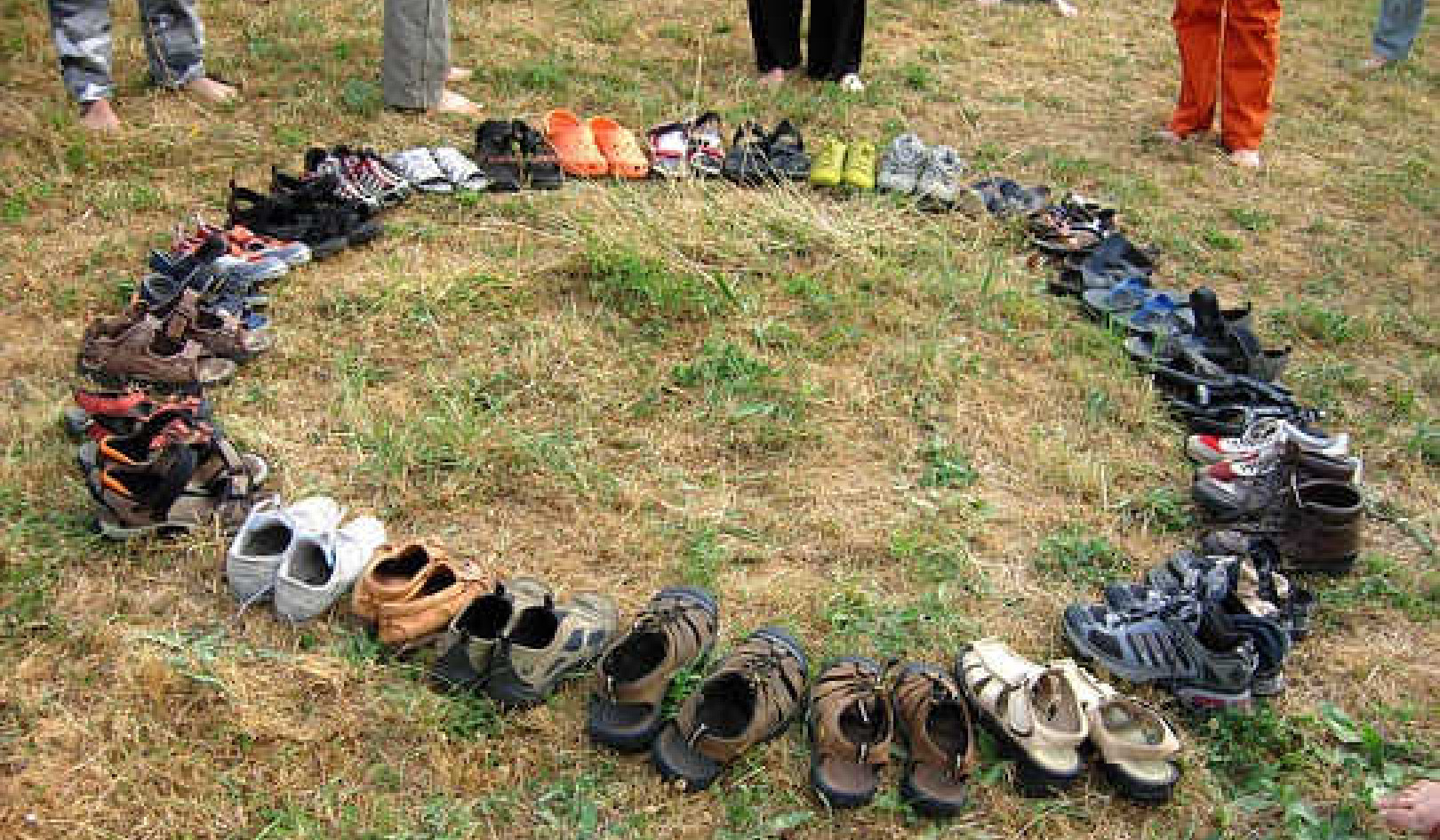
Image by KLEITON Santos
Grief is a bittersweet emotion. Even though it hurts we subconsciously long for the grief to continue. Through the hurt we have access to the memories and the connection we crave. We want the connection without the pain, but the two coexist. We have to hurt to connect again with the person we have lost. We are willing to put up with the pain if we can still have the residue of the relationship, the remnants, at least, of a loved one who now exists only in memory.
Memory is not an adequate substitute for the real thing. We entertain it for awhile but eventually we turn away because an imaginary relationship is unfulfilling. Our hearts yearn for a full and active life, not an imaginary one. A relationship is supportive only when it is alive and active, when it is vital and full of energy and growth. Memories can never serve this function because memory alone cannot sustain life.
As we heal, we begin to understand that when we dwell on what we used to have, we become as dead as the person we mourn. It is a one-sided engagement with a past time, and it leaves us disconnected from the present moment. Ultimately memory has no active life at all, although it can be skillfully used to recover from loss.
Living in the Present Moment
Christ said, "Let the dead bury the dead." He may have meant that only those who are unconcerned with their spiritual growth will dwell on the past, and that our guilt, remorse, and grief keep us dead to the living world. If we are living in the present moment, the influence of the past is minimal. Whenever we bring in the past and superimpose it on this moment, we kill part of our aliveness. We limit our actions and thoughts to what we have already done, and we limit ourselves to what we have already been.
We should view our memories as old relics that have limited use as current reference points. Grief is then understood as a process of healing ourselves to the past in order to move our lives into the present.
As time lessens the pain, our grief undergoes a transformation. We grieve the loss of the sensory contact but not the loss of the love, because the love is still here. Our love made the relationship, the body was only love's reference point. Warmth and affection come from the heart's connection and are not dependent on the person's physical presence at all.
Affection remains viable whether the person is in the same room, across the country, or dead. As a Shoshone medicine man said, "If the dead be truly dead, why should they still be walking in my heart?"
The Story of Edward
One of the hospice social workers related the story of Edward, who had lost his wife after fifty-five years of marriage. Edward and Ellie had loved each other dearly and were almost inseparable. They had met when Edward was fifteen years old, so he barely knew what life was like without Ellie.
After her death he missed her terribly. He kept all the details of her life just the way they were while she was alive. Elbe's clothes were in her closet untouched, and her bureau was filled with the trinkets of her life. He used the hospice bereavement services for the considerable support he needed during the first year of his mourning.
About a year and a half after Ellie's death, the social worker visited Edward in his home. The house seemed pretty much back to normal. Edward had given Ellie's clothes and possessions away and occasionally was "visiting with a few female friends".
The social worker inquired about the change. Edward responded by saying that over time he realized Ellie was still with him in his heart. "It is like an extended vacation. I don't see her, but I still love her. I miss her terribly, but the connection is still there, and she is telling me to go out there and live!"
Edward understood that Ellie was only a heartbeat away. Honoring Ellie did not mean focusing on her memory to the exclusion of all else. Edward celebrated his long life with Ellie by honoring the love he held for her every day. He used their love to open to a new life which included a new relationship. Edward married one of his female friends two years later.
GRIEF AND CHANGE
There is an acute sense of tragedy in our grief because we do not live comfortably with death, with discontinuity, with change. One of the mysteries of the mind is that we can live our years in a world that is defined by change and deny its influence on our lives. Shakespeare in Julius Caesar put it this way: "Of all the wonders that I have heard, it seems to me most strange that men should fear, seeing that death, a necessary end, will come when it will come."
We usually try to make everything last forever. We buy a new car and expect it to stay new, waking in the middle of the night to check if anyone has sideswiped it. When the inevitable dent does occur we grieve the loss of its permanent newness. We try to push life beyond its natural conclusion. We play it as if we could perform infinite encores. We do not allow it to end on time.
In attempting to perpetuate things long past their natural life span, we live at the expense of a greater harmony and contentment. If we include loss in our philosophy of life at all, it is only as tragedy or error, for which we blame anyone or anything. So grief catches us by surprise when it rudely interrupts our ideal world.
Our emotional well-being fluctuates with each scratch and dent in life. Our grief is partially a self-righteous resentment of the laws of the universe. Our longing to recover what is lost is an indication of how little we attune to the rhythms of nature.
There is a rhythm to grief as well. It is as natural and normal to grieve as it is to lose. It is said that even the Buddha mourned the loss of his two chief disciples. The mind has its own harmony, its own way of regaining balance and stability after a loss. That process is called grief.
Published by Wisdom Publications, Boston, MA
©1998. http://wisdompubs.org
Article Source
Lessons from the Dying
by Rodney Smith.
 Are a person's perceptions and values altered when facing the end of life? Do the dying see the world in a way that could help the rest of us learn how to live? This book takes us into the lessons of the dying. Through the words and circumstances of the terminally ill, we become immersed in their wisdom and in our own mortality. The dying speak to us in direct and personal ways, pointing toward a wise and sane way to live. In everyday language we can all understand, Rodney Smith extends the conversation about death to people of all ages and states of health. Through exercises and guided meditative reflections at the end of each chapter, the lessons of the dying become a blueprint for our own growth.
Are a person's perceptions and values altered when facing the end of life? Do the dying see the world in a way that could help the rest of us learn how to live? This book takes us into the lessons of the dying. Through the words and circumstances of the terminally ill, we become immersed in their wisdom and in our own mortality. The dying speak to us in direct and personal ways, pointing toward a wise and sane way to live. In everyday language we can all understand, Rodney Smith extends the conversation about death to people of all ages and states of health. Through exercises and guided meditative reflections at the end of each chapter, the lessons of the dying become a blueprint for our own growth.
Info/Order book. Also available as a Kindle edition.
About The Author
 Rodney Smith, M.S.W., has been active for 15 years as caregiver and director of hospice programs across the U.S. He currently is Director of the Hospice of Seattle. Also a noted meditation teacher, Rodney spent 8 years in a monastic community in the West and as a Buddhist monk in Asia. He conducts self-awareness classes in and around Seattle and teaches Vipassana meditation throughout the United States.
Rodney Smith, M.S.W., has been active for 15 years as caregiver and director of hospice programs across the U.S. He currently is Director of the Hospice of Seattle. Also a noted meditation teacher, Rodney spent 8 years in a monastic community in the West and as a Buddhist monk in Asia. He conducts self-awareness classes in and around Seattle and teaches Vipassana meditation throughout the United States.



























